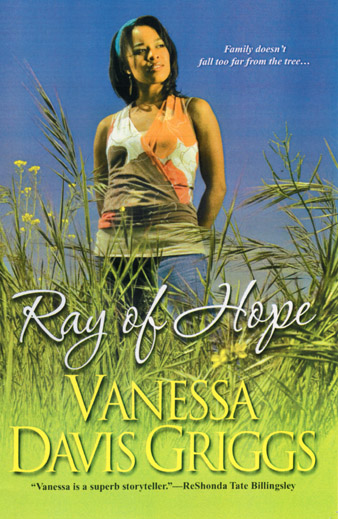SOMETHING TO THINK ABOUT…
One of the things I most enjoy about reading is that it gives me something to think about. With a “to do” list about 200 pages long, I should really read to escape the cares of the world during my Calgon bath moments. But, I digress.
As a Christian book promoter and marketing strategist, when I meet with emerging and established fiction and nonfiction authors to design their marketing plan for personal use and submission to their publisher or when they do online promotion via goodgirlbookclubonline.com, I am often asked the same question: “What is the difference between Christian and inspirational books and just good books?” I refrain from eye-ball rolling as I'm pretty sure I've answered this question like a million times over the past five years. Everywhere I go people ask me to answer and clarify the perplexing distinction between inspirational, CBA, evangelical and
I came across something from a writer/author today (see below) that made me think. Agree? Disagree? Let discuss it.
On the Christian book promotion trail,
Marina Woods, editorinchief@goodgirlbookclubonline.com
What defines a Christian novel? © Donna Fleisher
Is your novel truly a Christian novel, or just a G-rated novel?
What is a G-rated novel?
G-rated novels are clean and safe stories written for readers who are offended
by such things as violent behavior or lewd language. Like a G-rated movie.
What is a Christian novel? Is it the same as a G-rated novel?
What follows is strictly my opinion.
Seriously, I don't want to make myself out to be some kind of expert on this.
I just write and edit the stories; I don't make up the rules.
But if I did . . .
Some questions to ponder.
What really makes a story a Christian story?
If a story mentions God in that "Big Guy in the Sky" mentality,
is that enough to label it a Christian story?
Does a story have to openly proclaim the work of our Lord Jesus Christ
on the Cross to define it as Christian?
What if Christ isn't mentioned at all? Can that story still be a Christian story?
Hmm.
If you find yourself pondering in regards to your own story, ponder this:
What is the point of your novel? What is the reason for its existence?
Is there any edification going on? Any evangelizing?
Did you simply want to tell an entertaining story?
It's okay to write a novel for that one and only purpose, to entertain your audience. That's what 90%
of all novelists do. That's why people read novels in the first place. As Christian novelists writing
for a Christian audience, we want to entertain the Christian community.
It's okay to want to be entertained.
But would the rest of the world also be entertained by your novel?
Would they be challenged to consider or reconsider their faith?
Would they be convicted of their sins?
Would they only be entertained?
If non-believers read your Christian novel and are not challenged, outraged, disgusted, or convicted,
then you have not written a Christian novel.
You've written a G-rated novel.
Must a Christian novel actively evangelize non-believers
by boldly presenting the Gospel on every page?
Must a Christian novel actively inspire and uplift believers
by boldly presenting the goodness of our Lord on every page?
What must a Christian novel actively seek to do?
Bottom line? Entertain.
We are talking about making up imaginary stories about imaginary adventures
happening to imaginary people.
Stories made up by Christians for the entire world to read, both believers and non-believers alike.
If you don't entertain your reader, your story is dead.
But can a novel entertain, yet still evangelize and edify at the same time?
This, in my opinion, is what defines a Christian novel.
It is what sets Christian novelists apart from other novelists.
Other novelists only care about entertaining their readers.
We, as believers, know we have a higher responsibility, and that is to present the
Gospel of Christ Jesus as hope and salvation for ALL.
We should not be satisfied by simply telling an entertaining tale.
The Christian novels we write must first and foremost glorify
the Lord God of Heaven and Earth and His Risen Son, Jesus Christ.
It must make a difference in the world.
It must be a tool that God can use to change lives.
Christian novels must also uplift and encourage fellow believers.
It must edify them.
Christian novels must also present the Father God to non-believers.
Yes, it must evangelize.
And, no, this does not mean your characters must preach the Gospel on every page.
We have our work cut out for us. God has given us a huge responsibility to go along with the story
He has given us to tell. Our stories must lift up the name of the Lord Jesus, lift up the hearts of
believers, and lift up the eyes of non-believers to the Father.
And, don't forget, our stories must also entertain.
If we compromise and steer away from any of these three things, we tend to write G-rated novels:
good, clean, safe stories devoid of gratuitous sex, violence, offensive language, and the like.
G-rated novels are good. The world needs more G-rated novels.
But in a G-rated novel, no one is edified. No one is evangelized.
And personally, I think that is a shame.
When we step away from writing novels that openly glorify and honor God,
I think we step away from the concept of writing a Christian novel,
and from having our novel make a true difference in the world.
Even the most highly entertaining novels are quickly forgotten.
When God reaches into the heart of a reader because of what is written in a story,
that Heavenly Touch remains forever.
What is the final point to ponder?
Ask yourself:
If I take out all the "Christian" parts of my story, do I still have a story left to tell?
If I take out all the "Christian" parts, do I now have a story that will work in the general market?
If you answer yes to either question, your story isn't a Christian story at all.
It's one of those G-rated ones.
If you take out the "Christian" parts of a true work of Christian fiction, the story will collapse.
The "Christian" parts are as vital as plot, characterization, dialogue, and setting.
Don't take them out. Bolster them.
Give God every chance to touch your reader's heart.
His touch will cause your story to stay with your reader . . . forever.



















